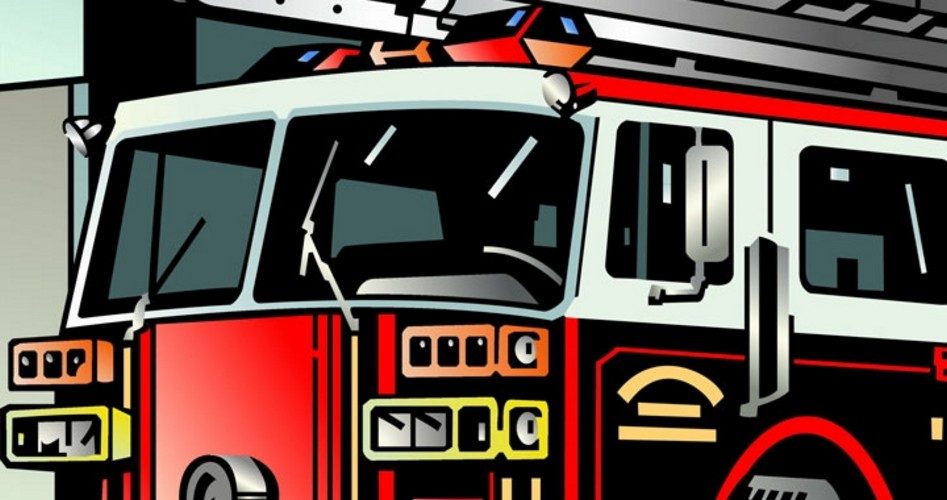
In an exhaustive seven-page letter to Woonsocket’s mayor, Leo Fontaine, FFRF objected to the “unconstitutional Latin cross” on the memorial in the fire station’s parking lot, as well as the “unconstitional religious postings on the Woonsocket Fire Department website.” Most specifically, the anti-religious group complained about the web content, is a page containing “a prayer that makes reference to a monotheistic god and a picture of an angel.”
“It is unlawful for a city government and its agencies to display patently religious symbols and messages on city property,” the atheist group soberly advised. “The website impermissibly demonstrates a preference for religion over non-religions,” and the Latin cross on the memorial “demonstrates Woonsockets preference for Christianity over other religions and nonreligion.”
These things ought not to be, pontificated the atheist apostles. “Such government endorsements of religion run afoul of the Establishment Clause of the United States Constitution,” the group notified Fontaine.
The atheists “requested” that the city “immediately remove the cross from the fire station parking lot and remove the prayer and angel from the Woonsocket Fire Department website.”
According to the Woonsocket Call newspaper, “the main bone of contention is a monument erected in memory of William Jolicoeur, a member of the American Expeditionary Forces who was killed in France during World War I. Unveiled on Nov. 13, 1921, the monument was rededicated in May 1952 in honor of three brothers, Alexandre, Henri and Louis Gagne, all killed in World War II.”
Continued the newpaper:
Historians and veterans regard the marker as a living link to Europe’s allies, especially France. At the close of World War I, Field Marshal Ferdinand Foch, the Supreme Commander of the Allied Forces, a Frenchman often called Europe’s counterpart to General Dwight Eisenhower, traveled to Woonsocket to dedicate the stone. Historian Ray Bacon, co-director of the museum of work and culture, says the occasion was Foch’s opportunity to pay his respects to Americans who died in the Great War. City residents repaid the tribute by naming Foch Avenue in honor of the French commander.
Richard W. Schatz, president of the United Veterans Council of Woonsocket, told the paper that “I think it’s an outrage they want to take down a cross put there in 1921 that has to do with soldiers who gave their lives to their country. To me this is just another type of terrorist attack on this country.” He added that “Christianity plays a big part in this country, [and when] you start taking Christianity out of the country, that’s when you start to bring the country down.”
The “unconstitutional religious postings” to which the FFRF objected comes mainly in the form of a copy of “The FireFighters Prayer,” that reads:
When I am called to duty, God, wherever flame may rage,
Give me strength to save some life, whatever be its age.
Help me embrace a little child, before it is too late,
Or save an older person from the horror of that fate.
Enable me to be alert and hear the weakest shout,
And quickly and efficiently, to put the fire out.
I want to fill my calling, and to give the best in me,
To guard my every neighbor, and protect his property.
And if according to my fate, I am to lose my life,
Please Bless with your protecting hand, my children and my wife.
According to The Call newspaper, Mayor Fontaine and city officials have risen to the FFRF’s threat with the level of respect such a challenge is due. “I have no intention of removing the cross under any circumstances,” Fontaine was quoted as saying. He noted that the monument has been “sitting there for 97 years and no one had a problem with it. And now someone from Madison, Wisconsin is so concerned?”
The city council’s president, John Ward, suggested that contrary to FFRF’s insistence that someone from the community complained to the group about the supposedly religious display, it is more likely the atheist group simply stumbled upon the memorial while canvassing communities around the nation looking for establishment clause “violations” to litigate for profit. Woonsocket is one of those target communities from which FFRF hopes to ferret a legal fee via a legal complaint. “It’s a jobs program for lawyers with nothing better to do,” said Ward. “I have serious doubts that someone actually reached out to them to file a complaint.”
Nonetheless, when push comes to shove it looks as if the atheist group may succeed in bluffing the community into removing its cherished memorial. While Ward “agrees with those who say the cross is more of a historical symbol — like the grave markers at Normandy, France,” reported Fox News, “he said the financially struggling city can’t afford to get dragged into a legal battle.” He conceded that he “would not vote to pay to defend” the memorial.
FFRF president, who has been at the bottom of scores of attacks against communities like Woonsocket over the years, said she anticipated that the city would quickly cave in to her group’s threats. “We expect to prevail without going to court,” she said.
Groups like FFRF have found a rich harvest of potential First Amendment legal cases to mine in Rhode Island. In January a federal judge ruled that a prayer banner at a high school in Cranston must be removed after the ACLU sued on behalf of one of a supposedly atheist student, Jessica Ahlquist.
FFRF got a piece of the media attention over the case after its leaders said Ahlquist’s actions inspired them to launch the “Atheists in Foxholes Support Fund” and award her a $10,000 scholarship. According to Fox News, FFRF even “has a complaint pending with the Rhode Island Commission for Human Rights after a Cranston florist refused to deliver flowers from the group to Ahlquist.”
Photo: The Woonsocket Fire Department webpage.

